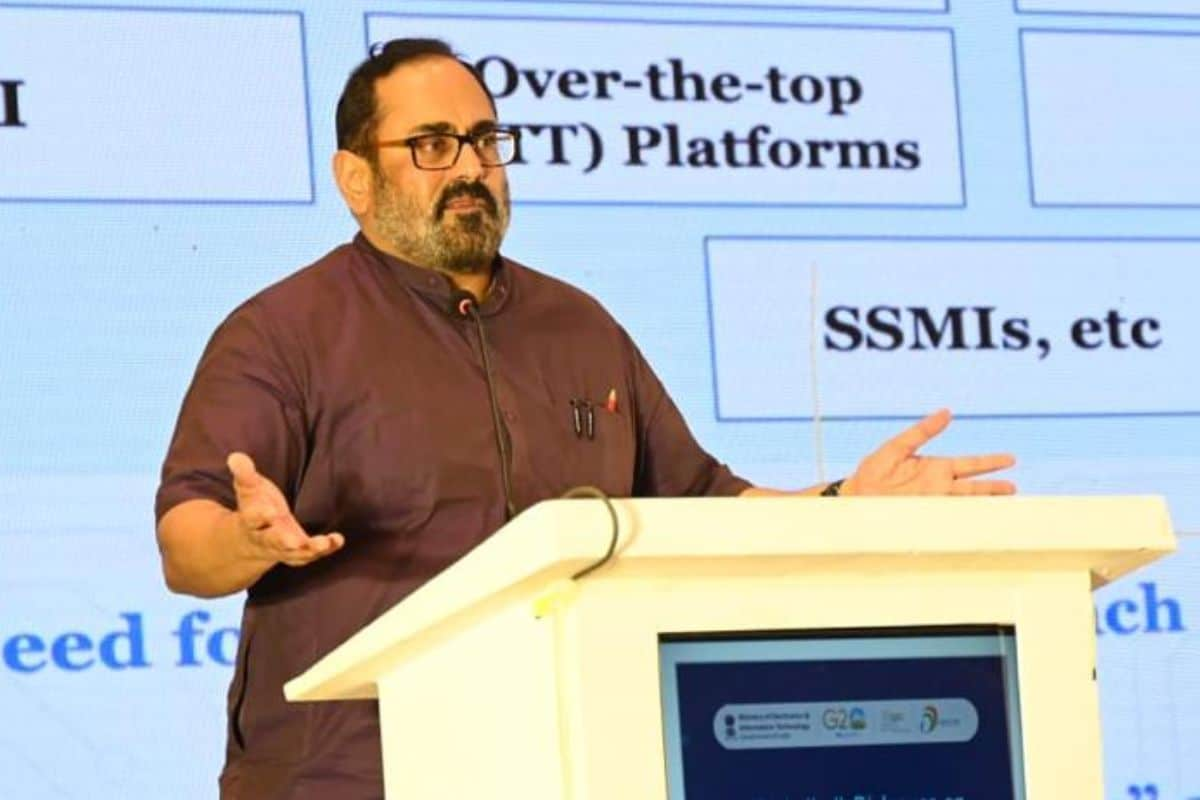[ad_1]
Union Minister of State for Electronics and Information Technology Rajeev Chandrasekhar presented the goal and design principles of the Digital India Act during the Digital India Dialogues in Bengaluru on March 9.
The minister not only presented the objectives and ideas behind this Act, but also mentioned that this was the first time a public consultation for a new law began with a dialogue.
During the presentation, MoS Chandrasekhar also noted the challenges that old laws have not been able to address in a massively evolved digital world, including online criminalities, cybersecurity, hate speech, disinformation and fake news.
According to the presentation, the new law should meet the principles of Digital India and progress through rules, while making sure that the primary focus areas are open internet, online safety and trust, accountability and service quality, adjudicatory mechanisms and new technologies.
However, it was mentioned that a core team in the IT Ministry has been working on this that includes MoS, Additional secretary, GC Cyberlaw, ASG, outside legal expert and industry expert.
The team will focus on doing a comparative study of all relevant global laws pertaining to the internet and technology in other countries, then drafting the bill, followed by consultations, as well as draft cabinet note and policy.
Experts’ View
Major Vineet Kumar, Founder and Global President of CyberPeace Foundation, told News18 the Digital India Act aims to replace the IT Act of 2000 and create a modern and comprehensive legal framework that aligns with global standards of cyber laws, as well as to create a synergy between other bills, Digital Personal Data Protection Bill, 2022, Telecommunication Bill 2022, and Intermediary Rules.
According to him, the aim is:
- It attempts to establish an internet regulator.
- The right of the individual to secure his information and the requirement to utilise personal data for legal purposes provide the main obstacles to data protection or regulation.
- It tries to deal with this difficulty. A limit will be placed on how far a person’s personal information can be accessed for legal reasons.
- A majority of the bill’s characteristics are in contrast with the EU’s General Data Protection Regulation.
“It is crucial to enact a legislation that will set forth new guidelines for individuals’ rights and responsibilities and mention the requirement to gather data. This should promote innovation and growth by providing a clear and predictable regulatory environment,” Kumar added.
Shasanka Sahu, Head of Marketing at Instasafe, said that this Act is a much-needed change that was pending.
“It has taken considerations of the Cybersecurity needs of users, data privacy, data moderation, and scope for emerging technologies like AI, ML and ChatGPT. With rising cyber threats, Digital India and Cybersecurity should be tightly integrated to make it a Secure-Digital India Movement,” he noted.
Roland Landers, CEO of All India Gaming Federation, applauded the Act on social media. He told News18 that they “believe that a comprehensive legislation that permits innovation while also protecting user safety will truly go a long way towards ensuring India’s place as a global standard-setter for regulating the digital sphere”.
Meanwhile, Manish Mimani, CEO and Founder of Protectt.ai, believes that the Act can help consumers and businesses trust each other by making sure that personal information is safe and promoting safe digital transactions, as well as can boost innovation and growth in the digital sector.
However, he said: “It is essential that the Act is inclusive and takes into account the diverse needs and interests of all stakeholders. The Act should also be aligned with international best practices and standards to ensure that India remains competitive in the global digital economy.”
Additionally, he said that the Act’s implementation should be carefully monitored and evaluated to ensure its effectiveness in achieving its objectives.
Read all the Latest India News here
[ad_2]
Source link




